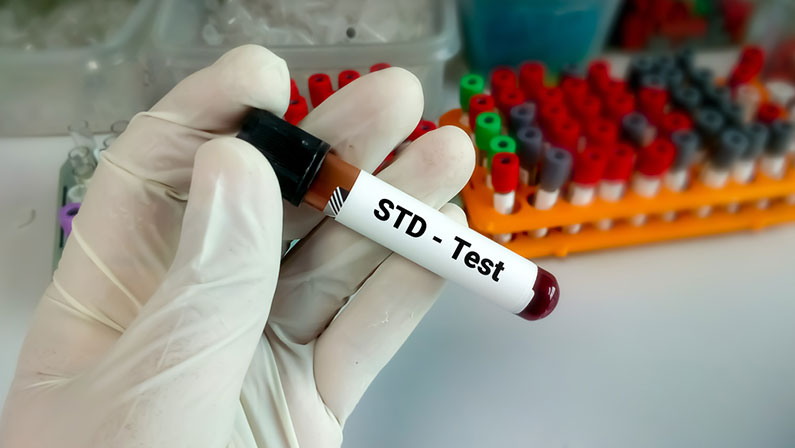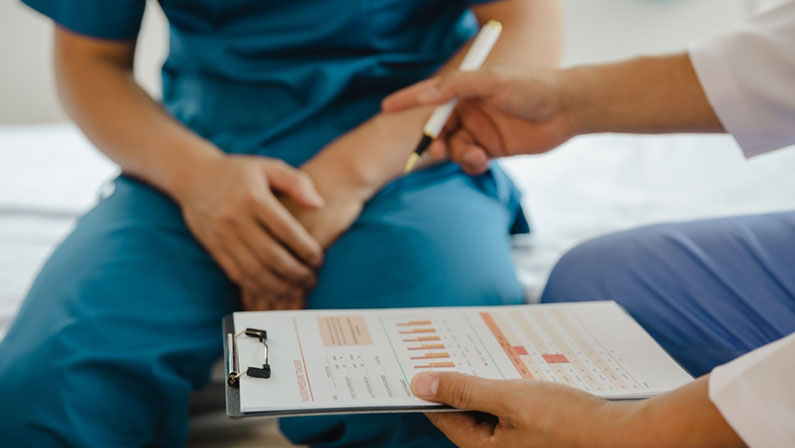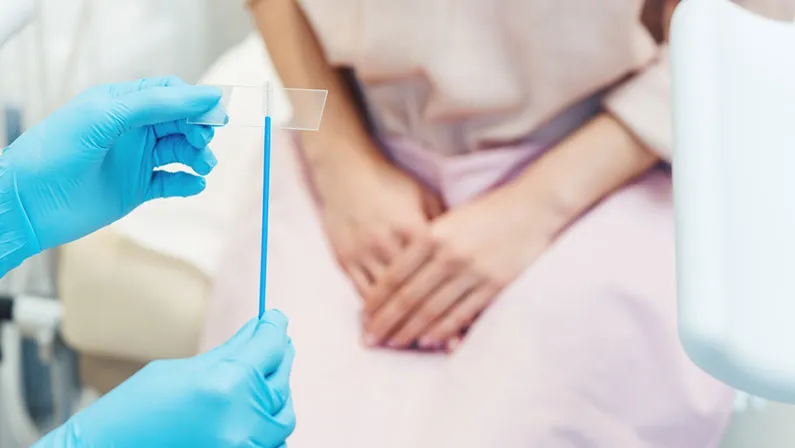Oral sex involves using the mouth, lips, or tongue to stimulate the genitals or anus of a partner.
While it’s often perceived as a lower-risk sexual activity, oral sex can transmit various sexually transmitted diseases (STDs). Understanding the risks and taking appropriate precautions to protect yourself and your partner(s) is crucial.
What is Oral Sex?
Oral sex refers to sexual activities involving the mouth and genitals or anus. It includes fellatio (oral stimulation of the penis), cunnilingus (oral stimulation of the vulva or vagina), and anilingus (oral-anal contact).
Can STDs Spread During Oral Sex?
What STD can you get from receiving oral? Well, many STDs can be transmitted during oral sex. The risk of contracting an STD through oral sex depends on factors such as the specific STD, the presence of open sores or cuts in the mouth or genital area, and the type of oral sex performed.
Which STDs Can Be Transmitted Through Oral Sex?

Various sexually transmitted diseases can be contracted through oral sex.
Here are some of the most common ones:
Herpes (HSV-1 and HSV-2)
Herpes simplex virus (HSV) can cause oral and genital herpes. HSV-1 primarily causes oral herpes (cold sores), while HSV-2 causes genital herpes. Both types can be transmitted through oral-genital contact.
Human Papillomavirus (HPV)
HPV is a group of viruses that can cause genital warts and certain types of cancer, including cervical, anal, and oropharyngeal (throat) cancer. HPV can be transmitted through oral-genital or oral-anal contact.
Gonorrhea
Gonorrhea is a bacterial infection that can infect the genitals, rectum, and STDs in the throat. It can be transmitted through oral-genital or oral-anal contact with an infected partner.
Syphilis
Syphilis is a bacterial infection that can cause sores or rashes on the genitals, rectum, or mouth. It can be transmitted through oral-genital or oral-anal contact with an infected partner.
Chlamydia and HIV
While the risk of transmitting chlamydia and HIV through oral sex is lower than through vaginal or anal sex, it is still possible, especially if there are open sores or bleeding gums.
What Are the Risks of Getting an STD from Oral Sex?
The risks of contracting an STD from oral sex vary depending on several factors, including the specific STD, the presence of open sores or cuts in the mouth or genital area, and the type of oral sex performed. In general, the risks are lower for oral sex compared to vaginal or anal sex, but they are not zero.
How Can You Tell if You Have an STD After Oral Sex?

Symptoms of STDs acquired through oral sex can vary depending on the specific infection.
Some common signs and symptoms include:
- sore throat after oral intercourse, blisters, or bumps in the mouth or genital area
- Unusual discharge from the penis or vagina
- Burning or pain during urination
- Fever, chills, or body aches
- Swollen lymph nodes in the neck or groin area
However, it’s important to note that some STDs may not cause any noticeable symptoms. Hence, regular testing is essential, especially if you have multiple partners or engage in unprotected oral sex.
What can you do to prevent STD transmission during oral sex?
While oral sex carries a lower risk of STD transmission compared to vaginal or anal sex, it’s still important to take precautions to minimize the risks:
- Use barrier methods: Use condoms or dental dams during oral sex to reduce the risk of STD transmission.
- Get tested regularly: If you’re sexually active, get tested for STDs regularly, even if you don’t have any symptoms.
- Communicate with your partner(s): Discuss sexual history, STD testing, and safer sex practices with your partner(s).
- Avoid oral sex if you or your partner has open sores or cuts in the mouth or genital area.
- Maintain good oral hygiene: Brush your teeth regularly and floss to reduce the risk of gum disease and bleeding gums, which can increase the risk of STD transmission.
Is Oral Sex Safer than Vaginal or Anal Sex?
Many questions arise, such as the chances of STD from receiving oral? Or, can you contract an STD from receiving oral? Or what do oral STDs look like? While oral sex carries a lower risk of STD transmission compared to vaginal or anal sex, it is still possible to contract an STD through oral sex.
The level of risk depends on various factors, such as the specific STD, the presence of open sores or cuts, signs of STD in the mouth or genital area, and the type of oral sex performed.
Should You Get Tested for STDs If You Only Engage in Oral Sex?

Yes, it is recommended to get tested for STDs even if you only engage in oral sex. While STD oral sex risk of contracting certain STDs may be lower compared to vaginal or anal sex, the risk is still present. Regular testing for STD mouth symptoms is important for early detection and treatment of any potential infections.
What Should You Do If You Think You Have an STD from Oral Sex?
If you suspect you may have contracted an STD from oral sex, it’s essential to seek medical attention promptly.
Here are some steps you can take:
- Make an appointment with your healthcare provider or visit a sexual health clinic for testing and treatment.
- Avoid sexual contact until you have been evaluated and treated, if necessary.
- Inform your sexual partner(s) so they can also get tested and receive appropriate treatment.
- Follow your healthcare provider’s instructions for treatment and follow-up care.
Can Oral STDs Lead to Complications If Left Untreated?
Yes, oral STDs can lead to serious complications if left untreated.
Some potential complications include:
- Increased risk of spreading the infection to other partners
- Increased risk of contracting other STDs
- Development of pelvic inflammatory disease (PID) in women, which can lead to infertility
- Increased risk of certain types of cancer, such as oropharyngeal cancer (throat cancer)
- Complications during pregnancy, if left untreated
How Can You Talk to Your Partner About the Risks of Oral Sex?
Talking openly and honestly with your partner(s) about the risks of oral sex and the importance of safer sex practices is crucial.
Here are some tips:
- Approach the conversation in a non-judgmental and respectful manner.
- Educate yourself and your partner about the potential risks and prevention methods.
- Discuss getting tested for STDs and share your test results.
- Agree on safer sex practices, such as using barrier methods during oral sex.
- Encourage open communication and mutual respect for boundaries and preferences.
Seeking Medical Attention at an Emergency Room in Pearland, TX
If you suspect you may have contracted an STD from oral sex or any other sexual activity, it’s essential to seek prompt medical attention. In Pearland, TX you can visit the emergency room in Pearland, TX, for prompt evaluation, testing, and treatment. Aether Health’s experienced medical professionals are equipped to provide comprehensive care for various medical conditions, including STDs.



